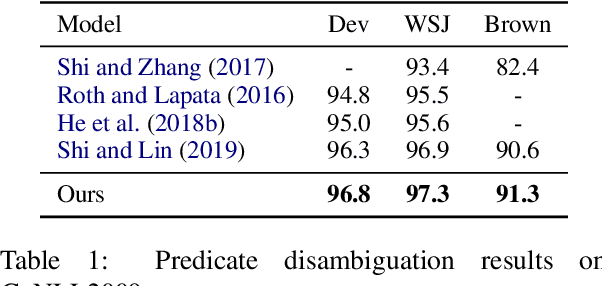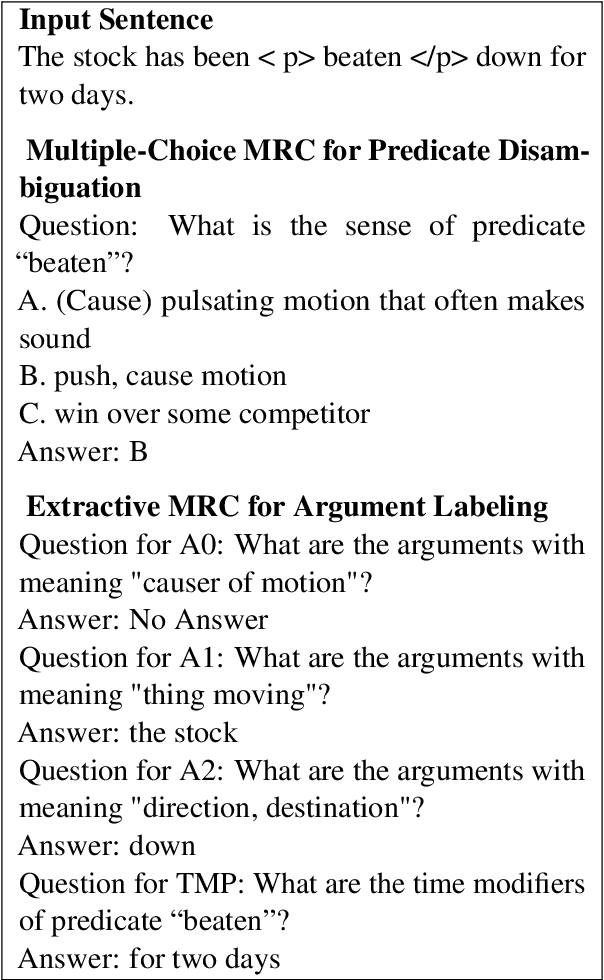An MRC Framework for Semantic Role Labeling
Paper and Code
Sep 14, 2021



Semantic Role Labeling (SRL) aims at recognizing the predicate-argument structure of a sentence and can be decomposed into two subtasks: predicate disambiguation and argument labeling. Prior work deals with these two tasks independently, which ignores the semantic connection between the two tasks. In this paper, we propose to use the machine reading comprehension (MRC) framework to bridge this gap. We formalize predicate disambiguation as multiple-choice machine reading comprehension, where the descriptions of candidate senses of a given predicate are used as options to select the correct sense. The chosen predicate sense is then used to determine the semantic roles for that predicate, and these semantic roles are used to construct the query for another MRC model for argument labeling. In this way, we are able to leverage both the predicate semantics and the semantic role semantics for argument labeling. We also propose to select a subset of all the possible semantic roles for computational efficiency. Experiments show that the proposed framework achieves state-of-the-art results on both span and dependency benchmarks.
 Add to Chrome
Add to Chrome Add to Firefox
Add to Firefox Add to Edge
Add to Edge